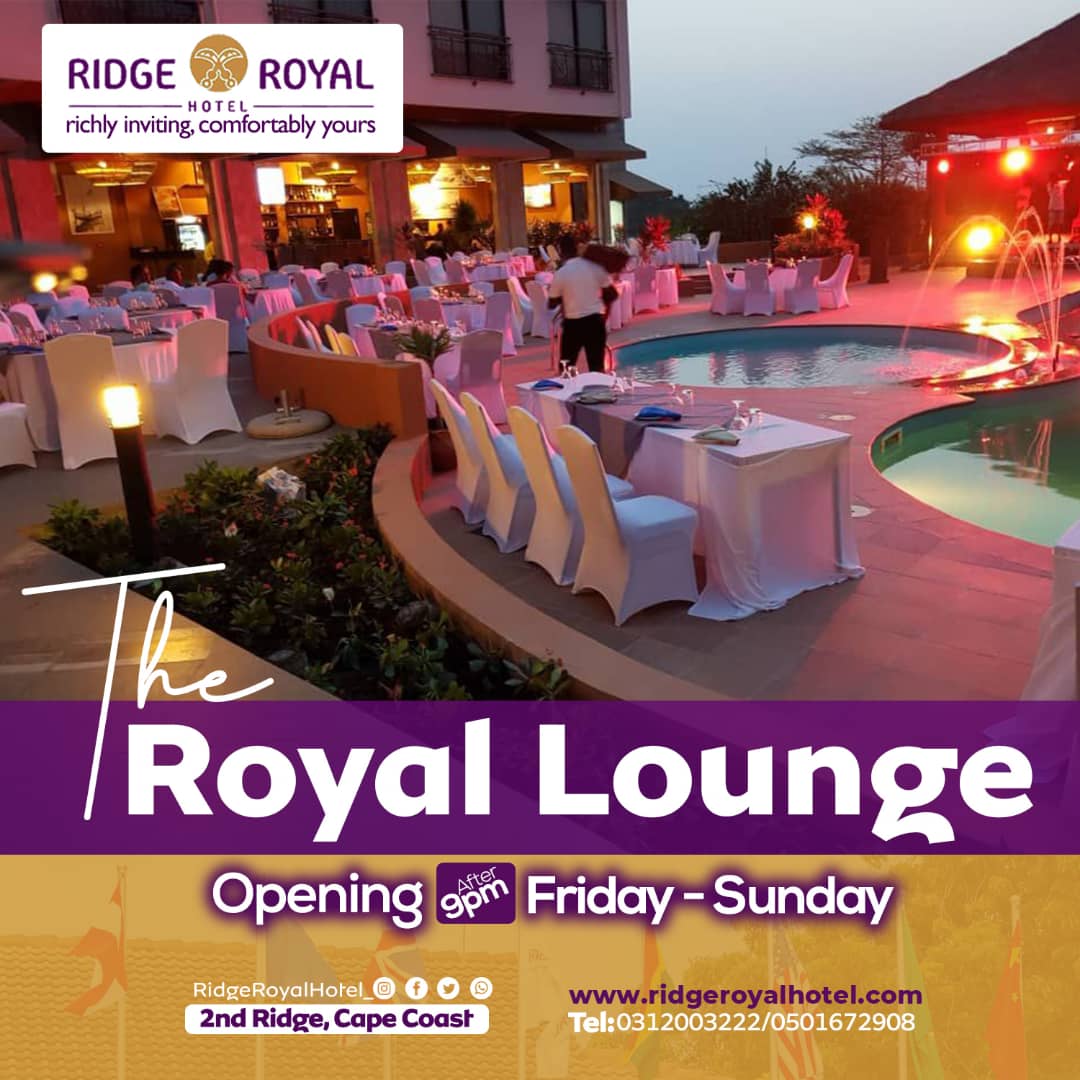|
Getting your Trinity Audio player ready...
|
A financial analyst, Michael Nii Yarboi Annan, has attributed the challenges facing Ghana in its finance management to the knowledge deficit on money and institutions of money—the financial sector.
Citing the financial sector clean up exercise executed by the Akufo-Addo led administration as an instance of poor decision, Mr. Anan said it would not have been effected if the government understood how money and the financial sector work.
In his primer article on “Understanding Money and The Financial Sector in Ghana”, he narrates how West Africa—Ghana for that matter—came to adopt the current medium of exchange for goods and services which has not been mastered and has resulted in many losses.
Read Part 1 of the article below:
Understanding Money and The Financial Sector in Ghana
West Africa and Money
We were taught for many years that money is a medium of exchange which is widely acceptable in exchange of goods and services. What we were not taught is the understanding of money. And that lack of understanding had made us take a lot of wrong decisions as individuals, nations and continent. I am tempted to believe that the woes of Africa are basically because money has never been understood.
Any good that assumes the role of a widely acceptable medium of exchange is called money, but the choice of money must address the convenience of want. Whatever trade I am engaged in, if I want to store value, I must choose a particular widely acceptable medium of exchange, if not then the convenience of want has not been addressed. The salability of money must posses three important qualities; it must be across time, across space and across scale.
Money salability across time is its ability to hold value into the future. This therefore will enable the owner of money to hold value into the future. When you farm tomatoes (money) which is perishable in future; the farmer cannot hold value in good (tomatoes) into the future and therefore tomatoes cannot satisfy this quality money must possess.
Money must be able to divide itself into smaller units or be grouped into a large unit allowing the holder to sell it to whichever quantity he/she desires; whiles the buyer of money must be able to request a specific units (large or small) for which he holds a commensurate goods to satisfy its exchange. This is how a good choice of money is able to satisfy salability across scale
A good choice of money must be able to satisfy ease of movement from one place to the other. At one point in this continent’s history, cowries were used as money; that was a choice of some people which was widely accepted, but its transportation was always a challenge and therefore a bad choice.
Looking at the history of money in Africa from beads, salt to gold will give us a clear understanding of money and the qualities that makes one money survive over-time and the others becoming mere consumables.
In the 1600s most parts of Africa had used beads as a medium of exchange before the arrival of the Europeans in Africa. Beads were made from meteorite stones, which were difficult to come by. The stones are beaten into powder after which, it is poured into clay mould to form a specific shape. The powder in the mould is then subjected to heat and after, a cooling process. The process of making beads was extremely difficult thus it wasn’t easy to come by; making it a good choice of money.
The size of beads made it easy for it to be transported from one place to the other and at the same time can be easily scaled in small units and large units.
The Europeans who arrived had realized they could use glass instead of the meteorite stones. And to give it similar colour they added dyes with aluminum moulds, making it easier for them to produce something similar to our beads in West Africa. Our tragic moments in West Africa, was the acceptance of the easily produced beads from glass as money to impoverish West Africans of their wealth by transferring our wealth (slaves, livestock, gold dust, palm oil, palm kennel, timber, monkey skin etc.) to the Europeans.
Anytime you see an African-American, remember, it was because West Africa failed to understand what sound money means
Sound money must not be produced easily by its producers. Once the quantity of money in circulation can be increased easily by its producers, then, the value of that money is distorted and devalued. Unfortunately, this happened for a very long time in West Africa and later these easily produced European beads were called the slave beads.
Several centuries have passed but the strategy has not changed. What changed is the medium being used as money today. I will elaborate in this article how the new medium was developed using the financial sector as its tool.
Any society that has easy money is poor because hard-earned wealth will be sold in exchange for something easily produced like the slave beads produced by the Europeans.
The other important aspect of money is the acceptance by all, that makes monetary mediums a sound good. If West Africans have not accepted the European beads, our wealth would not have been easily transferred to them.
Again, acceptance of a particular good as money allows all prices and values of assets to be expressed in its terms which is called Unit of Accounts. If the primary unit of account is not widely accepted, then, other competing money will be used freely for pricing. That will reduce the demand for your primary unit of accounts thus, devaluing it; the case of the Ghanaian Cedi.
Money allows us to store value by transferring our hard-earned goods into it, to store value over a period of time. The difference between rich and poor is simply those who are able to store value in a good (money) that is stable in value and indestructible over time. The storage of value then allows them to create innovation and encourage individuals to direct their resources in consuming those innovations, rather than investing in similar innovations.
To make them poor and dependent, make them consumers and not producers
We are consumers because we are unable to store value (capital accumulation) over time due to weak currencies and over-burden tax regimes because of high cost of debt procured from easy money.
Gold the Super Currency
Around this same time in Europe, Gold had become the most salable good, and the reason for their continues purchase of gold dust from West Africa. Nonetheless, the process involved in extracting gold is so difficult to the extent that the producers of gold cannot produce gold to distort it value.
The British have then begun the production of gold coins making it more salable across space. The activities of pirates had made most financiers of these voyage to West Africa and other parts of Africa a challenging task by robbing various companies of their gold dust. Even after smelting the final product from gold dust to either gold coins or bars it was still risky transporting gold in Europe.
This led to the establishment of Banks in the 19th century by the financiers of voyage who owns the gold. The Banks will hold the gold and issue a paper backed by gold for safe transportation and trading while the gold sits in the vaults of the Banks. Soon a financial sector had emerged out of this challenged pose by thieves.
What happened next was interesting and that created a new system in use till date. The Banks were able to issue more paper acknowledgement of your ownership in gold than what they held in their vaults. And whiles you trade with the paper acknowledgement they the banks also trades with the actual gold in their vaults.
Gold has been a perfect currency till date. Its producers are unable to produce gold over 2% of its stockpile for several decades. With the accumulation of capital and the creation of modern technology has still not made the production of gold easy. The metal is indestructible and therefore many have found it a sound good to store value.
This is a commodity that abounds in Africa; a God-giving assets, yet we do not own it. The same strategy used in the 1600s was used in the 20th Century to transfer our wealth to the Europeans. Sadly, the so-called African – British and US trained professionals who occupied leadership gave it out just like our 1600 leadership of Africa did. Whiles the rest of us store our value in their education in the West, thinking they will transfer valuable knowledge to Africa. They led the looting of our resources to Europe in the 20th Century with a slang tongue misunderstood for dexterity landed us with nothing.
There are many such commodities that the continent has been blessed with yet because of our inability to understand money, we have failed to store value to take opportunity of future-orientation to encourage others to invest their resources to consume what we produce.
The critical success/failure line between poor and rich nations is about who has sound money, the understanding of money and their choice of money.
It is not the caricature of science nor that of religion but the understanding of money.
The Financial Sector
Money is the beginning of everything you see and refers to as the financial sector. Without money there will be no need to have banks, insurance companies, mortgage and other financial service firms.
Money alone could not have really instigated the emergence of banks but the risk associated with money back then and now, made it imperative to mitigate such risk by saving money with the banks. The early days banks have their activities scattered with individuals providing loans, temples (churches) being used as vaults and emperors minting gold coin and deciding their values base on the amount of gold or silver in the coin.
By 1837, telegraph have been deployed commercially and improved transport systems had allowed banks to communicate and transport money more safely. At this point the temples were no longer used as vaults, a separate institution has been created being the banks. The banks were also lending money to merchants to trade; this was the birth of banking and by extension the financial sector.
The two mentioned innovation in communication and transport has led to the use of bills, cheques and paper acknowledgements as monetary media instead of physical gold and silver coins. This paper acknowledgements are instantly redeemable into precious metals mostly gold held by the banks.
The banks have gained grounds in all of Europe around the 1800s with Britain leading; under the direction of a scientist Isaac Newton who was the Warden of the Royal Mint. About this time in West Africa the beads were no longer acceptable medium of exchange due to the devastating devaluation. Gold dust has replaced the beads and locals will rather prefer to store value in gold dust.
Traders from Europe had difficulties in trading with West Africans on barter basis due to the convenience of want, that was expensive to the Europeans. They have to exchange wealth with wealth unlike the easily produced beads. The British realized we had become stronger in trade and therefore introduce Banking in West African by establishing the Bank of British West Africa (BBWA) in 1894. The Bank introduced the silver coins which was no longer in use in Europe because of its devaluation and was used as currency; once again to transfer our hard-earned wealth to the Europeans for easily produced silver coins.
The silver coins are easily defaced losing it value. What it meant was simple, our hard-earned wealth could not be stored across time. These coins were mainly used for trading; as I mentioned earlier, the strategy never changed. What changed is the monetary medium which I had mentioned earlier.
The BBWA had flourished so well and the results will invite competition ushering Barclays Bank in to the Gold Coast to compete with BBWA. It was not until 1957 when Ghana had gained Independence birth the establishment of new banks between 1957 – 1965. The following banks were established:
Ghana Investment Bank – as investment banking institution
Agricultural Development Bank – for the development of Agriculture
Merchant Bank – for merchant banking
Social Security Bank – to encourage savings
We understood as people, we needed this banks to trade, store value over time, accumulate capital and invest into innovations. But what we failed to understand was money and that situation as not changed. The then government began its administration of the resources of this nation with huge surplus with the balance of payment and by 1963 it was clear we were running into serious financial challenge’s.
Many have said, the difficulties the economy run into was due to our socialist stance and political ideology of the government then but, the fact is, we never understood money and the use of the financial sector. Till date we have still not gain understanding of the sector; if we do, a government will not rush to nationalize privately owned banks and call it a cleanup.
In my next outing I will delve deeper into the books of those banks we claimed to have cleaned, because they were undercapitalized and throw more light why we need to seriously understand money and the financial sector.
Ghana cannot prosper beyond aid without the understanding of money and the institutions of money.








